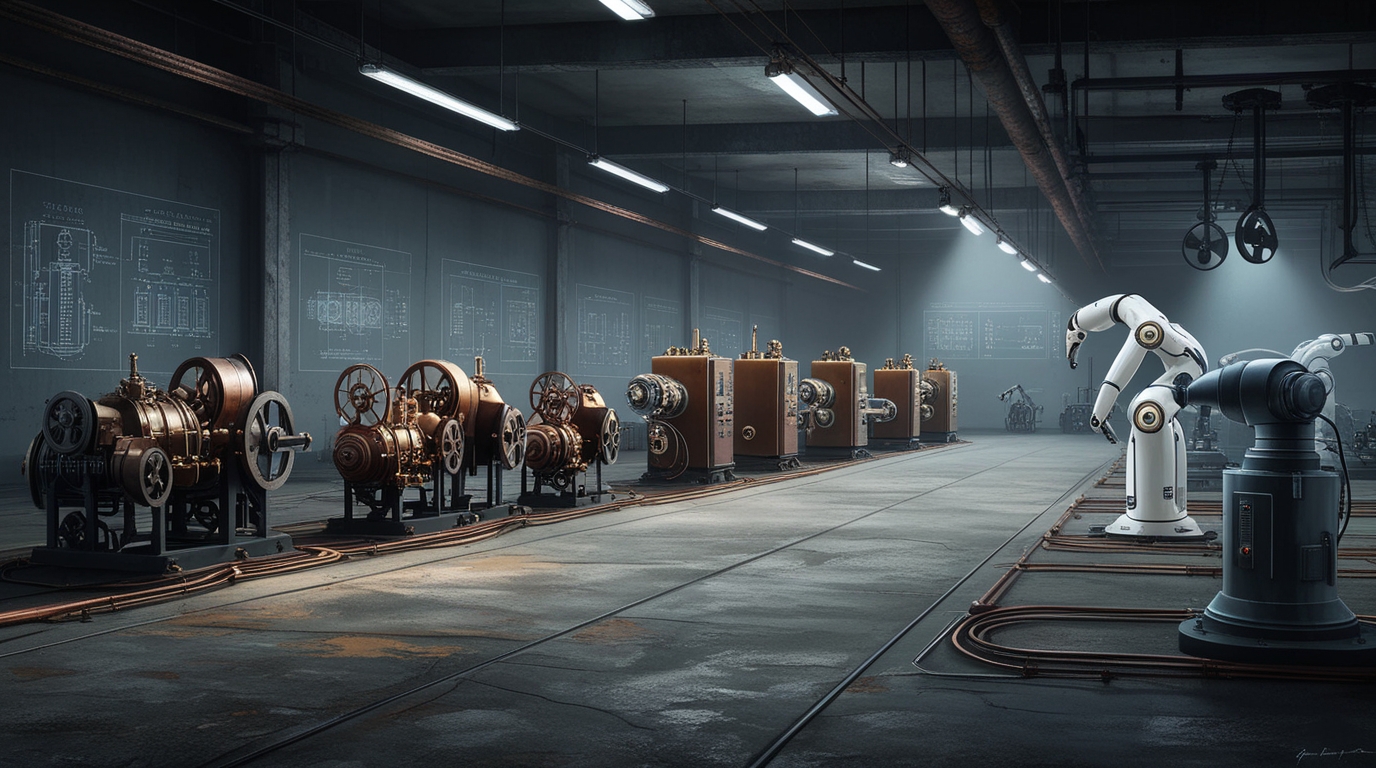Industrial automation has come a long way, transforming how we produce goods and shaping industries worldwide. Let's explore this journey, highlighting key milestones and the current scenario.
Looking for skilled courses to brighten your career in the automotive industry? Look for iACE’s Industrial Automation courses and get the best opportunity to build your career.
Early Innovations: The Birth of Automation
In the early 19th century, the Jacquard loom introduced punched cards to control weaving patterns, marking one of the first instances of automated machinery. This innovation reduced manual intervention and paved the way for more complex automated systems.
The Industrial Revolution further accelerated automation. Steam engines powered factories, enabling mass production and reducing reliance on human labor. This era saw the rise of mechanized equipment that could perform repetitive tasks more efficiently than humans.
The Assembly Line: Revolutionizing Manufacturing
The early 20th century brought about a significant shift with the introduction of the assembly line. Henry Ford's implementation of this system in automobile manufacturing drastically reduced production times and costs. Workers specialized in specific tasks, leading to faster production rates and the ability to meet growing consumer demand.
The Digital Age: Programmable Logic Controllers
The 1960s marked the advent of Programmable Logic Controllers (PLCs), which allowed for more flexible and reprogrammable control systems in manufacturing. This innovation enabled factories to adapt quickly to new products and processes, enhancing efficiency and productivity.
Industry 4.0: The Rise of Smart Factories
Today, we stand in the era of Industry 4.0, characterized by the integration of cyber-physical systems, the Internet of Things (IoT), and artificial intelligence (AI) in manufacturing. Smart factories utilize interconnected machines, real-time data analytics, and autonomous systems to optimize production processes. This transformation leads to increased efficiency, reduced waste, and the ability to respond swiftly to market changes.
Current Market Trends and Statistics
The industrial automation market has experienced significant growth in recent years. In 2024, the global market size was valued at approximately $233.81 billion and is projected to reach around $569.27 billion by 2034, expanding at a compound annual growth rate (CAGR) of 9.31% from 2025 to 2034.
Regionally, Asia Pacific has emerged as a leader in automation adoption, accounting for over 39% of the market revenue in 2024. This surge is driven by countries like China, which has significantly increased its robot density to 470 robots per 10,000 workers, surpassing Germany's 429 and ranking third globally.
Implications for the Workforce
As automation advances, the demand for skilled professionals who can design, operate, and maintain these sophisticated systems has risen. This shift underscores the importance of specialized education and training.
Our Commitment to Empowering Future Engineers
At the International Automobile Centre of Excellence (iACE), we recognize the evolving landscape of industrial automation and its impact on the automotive sector. Our mission is to equip aspiring automobile engineers with the skills and knowledge required to thrive in this dynamic environment.
We offer:
- Automotive Training Institute: Our state-of-the-art facilities provide hands-on experience with modern and advanced tools, ensuring that students are well-prepared for real-world challenges.
- Certification Courses for Automobile Engineers: Our programs are designed to cover the latest advancements in automotive systems, manufacturing, and electronics, aligning with industry standards and expectations.
Conclusion
The evolution of industrial automation from early machines to smart factories has revolutionized manufacturing processes, leading to unprecedented efficiency and productivity. As the industry continues to evolve, staying abreast of technological advancements and acquiring relevant skills is crucial. At iACE, we are dedicated to guiding you through this journey, ensuring you are well-equipped to contribute to and excel in the ever-changing industry of industrial automation.


